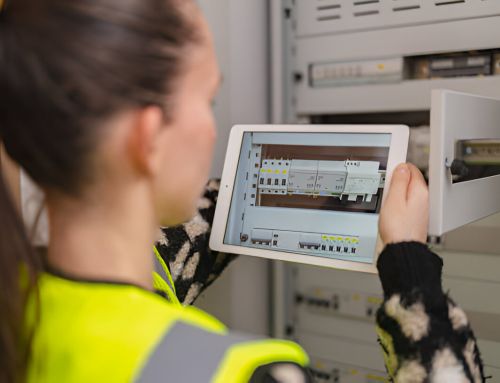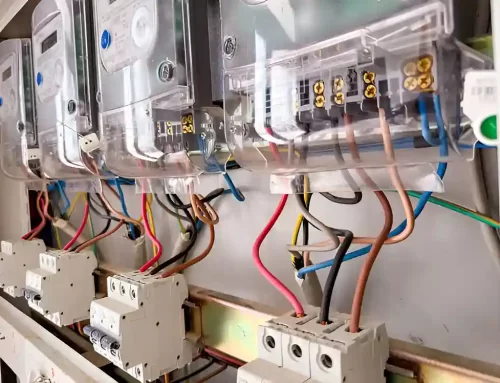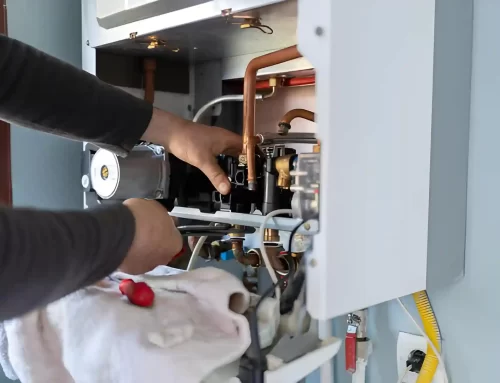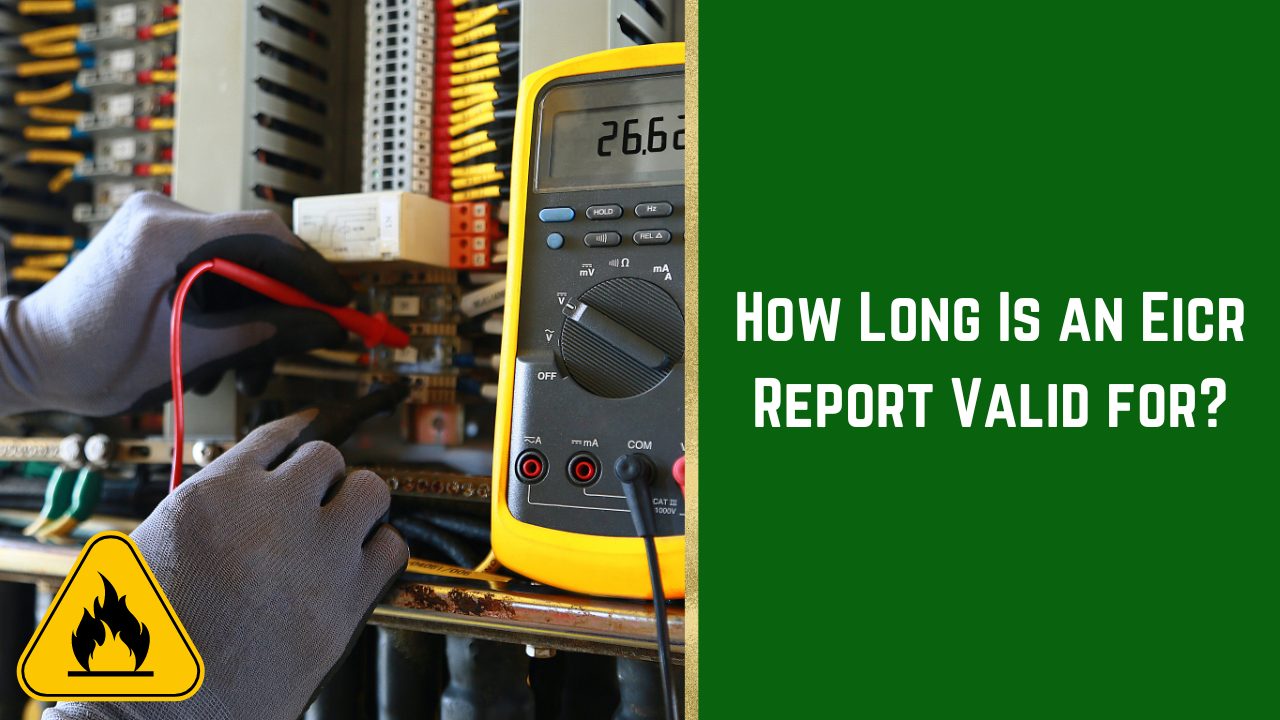
Ensuring the ongoing safety of electrical installations involves understanding the lifespan of an EICR report.
But have you ever wondered how long such reports remain valid?
Let’s explore the intricacies behind the validity period of EICR reports and how this knowledge can impact the maintenance and compliance of electrical systems.
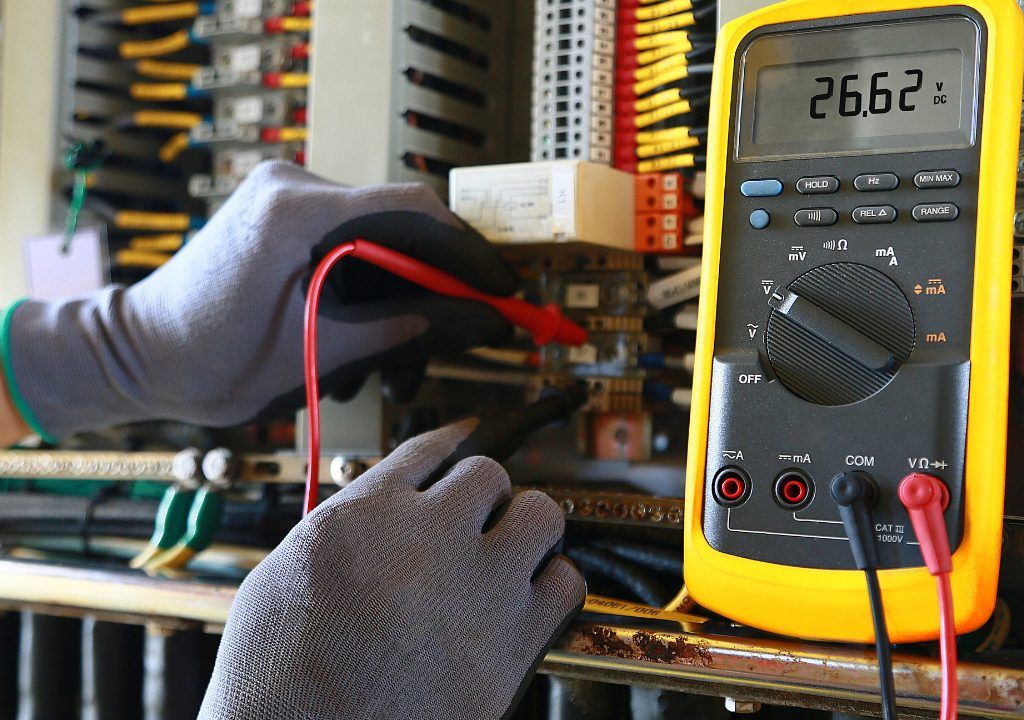
Understanding the EICR Process
The EICR process involves a comprehensive examination of a building’s electrical system to identify potential hazards and ensure safety and compliance. During an EICR inspection, various electrical components are scrutinized for any signs of damage, deterioration, or defects that could pose risks to the occupants or property.
The main goal is to guarantee electrical safety by pinpointing and addressing any issues that may compromise the system’s integrity. Through this meticulous evaluation, maintenance recommendations are provided to rectify any problems and enhance the overall safety of the electrical setup.
Additionally, the assessment aims to determine the validity of the EICR certificate, ensuring that it accurately reflects the current state of the electrical installations. By conducting thorough inspections and highlighting potential hazards, the EICR process plays a crucial role in maintaining a secure and compliant electrical environment.
Who Requires an EICR
Transitioning from understanding the EICR process, the individuals who necessitate an EICR inspection include landlords, property managers, homeowners, and businesses. Landlord obligations mandate periodic EICR checks to ensure tenant safety and property compliance.
For commercial properties, EICRs every five years are essential to meet regulatory requirements and maintain a safe working environment. Homeowners seeking to safeguard their residences and families should consider EICRs every ten years to preempt potential hazards.
In property sale transactions, an EICR is often required to verify the electrical system’s integrity and reassure buyers of a secure purchase. Moreover, businesses must prioritize EICRs to comply with industry regulations, enhance workplace safety, and avoid legal penalties.
Ensuring EICR compliance across these sectors promotes a culture of safety, minimizes risks, and fosters a proactive approach to electrical system maintenance.
Factors Influencing EICR Validity
Understanding the factors that influence the validity of an EICR is crucial for ensuring electrical safety and compliance. Several key aspects impact the duration of an EICR.
First, the EICR renewal frequency varies based on the type of property, risk level, and maintenance quality. Environmental conditions also play a significant role in determining the intervals between EICR inspections, as different settings may require more frequent checks due to specific risks.
Additionally, the age and quality of the installation itself affect how often EICRs should be conducted. The frequency of use of the electrical systems is another factor to consider when determining the validity of an EICR.
Lastly, proper EICR maintenance considerations, such as adherence to inspection guidelines and prompt remedial actions, are essential for extending the validity of the electrical installation condition report.
Guidelines for EICR Duration
Considering various factors influencing electrical safety assessments, determining the appropriate duration for Electrical Installation Condition Reports (EICRs) involves evaluating property type, risk factors, and maintenance quality.
EICR renewal processes are essential to uphold safety standards, with inspection intervals varying based on the property’s use, risk level, and age of installation. The EICR certificate lifespan is influenced by adherence to maintenance guidelines and compliance standards, ensuring ongoing safety and regulatory alignment.
For commercial properties, a standard EICR every five years is recommended, while high-risk environments may necessitate annual checks. Homeowners are advised to schedule EICRs every ten years, and landlords should aim for EICRs every five years or at each tenancy change. Specific property use and installation intricacies play a significant role in determining the optimal inspection frequency.
The EICR Legal Requirements
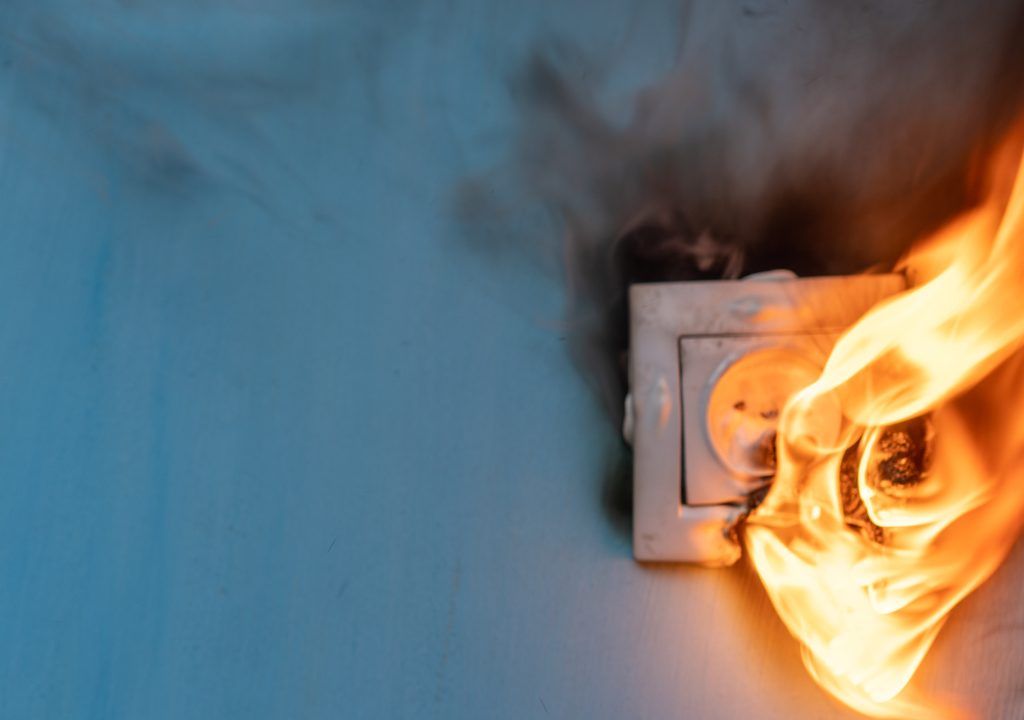
Landlords must ensure compliance with EICR legal requirements by conducting inspections every five years beginning April 2021. The EICR renewal requirements mandate timely assessments to uphold safety standards and adhere to certification guidelines.
These EICR compliance updates emphasize the importance of maintaining regular inspection intervals to guarantee the safety of electrical installations. Meeting EICR safety standards is crucial for landlords and property managers to fulfill their duty of care obligations and avoid fines.
The EICR certificate guidelines outline the necessary steps to ensure that all electrical systems are in optimal condition, reducing the risk of hazards and promoting compliance with regulations. By following these EICR legal requirements diligently, property owners can safeguard their premises, provide a secure environment for occupants, and demonstrate a commitment to electrical safety and maintenance.
Importance of Regular EICR Checks

The significance of regular EICR checks cannot be overstated in ensuring the safety and compliance of electrical installations. Conducting periodic assessments is crucial for maintaining electrical safety, assessing risks, implementing preventive maintenance measures, guaranteeing compliance with regulations, and protecting the property from potential hazards. Here is a breakdown of the importance of regular EICR checks:
| Key Aspect | Importance |
|---|---|
| Electrical Safety | Ensures safe operation of electrical systems |
| Risk Assessment | Identifies potential hazards and dangers |
| Preventive Maintenance | Helps in early issue detection and resolution |
Regular EICR checks are fundamental in upholding the integrity of electrical installations, mitigating risks, and safeguarding properties from electrical faults. By prioritizing these inspections, property owners can proactively address any concerns, adhere to legal requirements, and create a secure environment for occupants.
Conclusion
In conclusion, the validity of an EICR report is influenced by factors such as property type, risk levels, and maintenance quality. Adhering to guidelines and legal requirements for EICR inspections is crucial to ensuring ongoing electrical safety.
Regular checks are essential for maintaining compliance and guaranteeing the functionality of electrical systems. By understanding the timelines and customized validity periods of EICR reports, individuals can effectively uphold safety standards in electrical installations.
Our Pricing
| Our Electrical Safety Certificate Prices |
|---|
| Studio Apartment £67.99 |
| 1 – 3 Bedroom £94.99 |
| 4 Bedroom £104.99 |
| 5 Bedroom £139.99 |
Check Out Our Other Services
| EICR | Commercial EICR | Emergency Light Certificate |
|---|---|---|
| Electrical Diagnostic | PAT Testing | Fuse Box Installation |
About the Author: LandlordCertificate
Related Posts
Get Social
Recent Posts
- Electrical Diagnostic London: How Professional Testing Keeps Your Property Safe and Compliant
- Asbestos Management Survey London: Update Your Property Records
- Gas Safety Certificate London: Why Regular Checks Save Money Long-Term
- FRA London Explained: How a Professional Fire Risk Assessment Keeps You Compliant and Safe
- When a New Tenancy Requires Your EICR Certificate London Renewal


